Unlocking Your Brain's Potential: 4 Natural Ways to Boost Brain Health
Unlock your brain's potential and boost cognitive function the natural way. From brain exercises to foods, learn 4 easy ways to improve your brain...
You are what you eat. What are brain foods that hinder brain performance? You'll be surprised to learn all the foods that are out and which ones power your brain.
In order to train your brain to perform at its best, you need to look at what you eat. Different parts of your body need different foods to function at their best--the blood needs foods high in iron, the muscles need foods high in potassium and magnesium. What foods does the brain need to optimize memory, concentration and emotional stability?
Research published in the Journal of Child Psychology and Psychiatry shows a link between a mother's diet during pregnancy and conduct disorder and ADHD symptoms in children.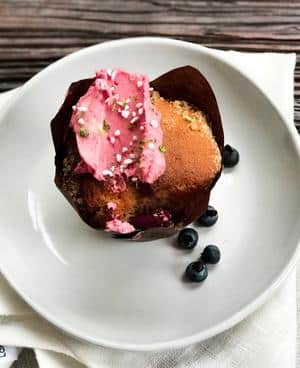 This is one focus in the growing field of epigenetics, which looks at how environment and behavior affect DNA, and the expression of genes.
This is one focus in the growing field of epigenetics, which looks at how environment and behavior affect DNA, and the expression of genes.
In this study, researchers found that diet affects gene activation. Specifically, they found that sugar and fat may affect one gene associated with conduct disorders and ADHD. Women who ate high sugar and high- fat diets while pregnant had children with greater alterations in this gene. This study is not stating cause and mothers do not cause ADHD in their children. However, insights into the correlations between diet and gene activation may help doctors create preventative plans.
We have known for some time that prenatal diet has a direct impact on infant development. Now, evidence points to a specific area of functioning that may be affected by diet: impulse control, ability to focus, attentional abilities and mood regulation.
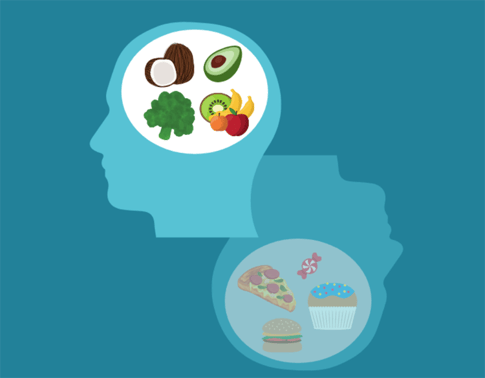
Research shows that certain foods are better for the brain, while others make it harder to optimize memory, energy and emotional wellness. In general, a diets based on whole foods, rather than processed foods, has better health outcomes. Let's discuss what this means.
Firstly, whole foods are not found in boxes! In fact, they are minimally processed before you prepare them. You buy the ingredients in their natural forms and then make them at home. They go through very few changes before being consumed. At most, they are cooked and seasoned before you eat them. A roasted chicken with steamed vegetables and rice is an example of a whole food meal.
On the opposite end of the spectrum, we have processed foods. Chicken nuggets, frozen pizza and store-bought ice cream are all examples of processed foods. These foods go through unnatural changes before they arrive on your plate. They may have flavor, sugar, or color additives, be excessively salted, or contain chemicals to preserve the food. In most cases, they go through more than one change and are drastically different from how their ingredients are found in nature, which is why our bodies can have difficulty digesting them and sometimes can create allergic reactions.
Now that we've discussed the general categories, here are some specific foods you should avoid, as well as food you can eat to optimize brain health.
When considering the definition of chronic toxicity, sugar is a toxin. It won't kill you as soon as you eat it, but the long-term effects of excessive sugar consumption are dangerous. As an anecdote, a pathologist friend of mine told me that he took his entire family off of sugar in 1965. "It was the best thing I could do to ensure the longevity of their lives."
In 2015, Dr. Robert Lustig, an endocrinologist from the department of pediatrics at the University of California, published a report proving that sugar was toxic. In a very unique study of children's' diets, Dr. Lustig found that cutting sugar made participants healthier in terms of body fat and cholesterol, even when calorie intake remained the same.
Right now, the average kid consumes 34 teaspoons of sugar every day, largely as corn syrup in sodas and processed foods. This means roughly 25% of their recommended daily calories are coming from sugar--more than double what it should be.

Sugary drinks, including fruit juice (the body processes these fruit sugars as fast as sugar cane or corn syrup when the fruit's fiber isn't consumed at the same time. In other words: eat an apple, stay away from apple juice.)
Desserts, candies, cookies, candy bars
Honey (yes, the body still metabolizes honey as sugar!)
Sugary cereals, including many granolas, which hide the amount of sugar in them by marketing themselves as "natural" foods
The first category includes what we all associate with "sugar" but this second one is about simple carbohydrates. The body very quickly breaks down simple carbs into sugars. A great documentary to watch on this topic is Fed Up by Katie Couric and Laurie David.
Simple carbs include:
Breads, bagels, tortillas
Starchy vegetables: potatoes, sweet potatoes (better than potatoes), corn
Potato chips, tortilla chips
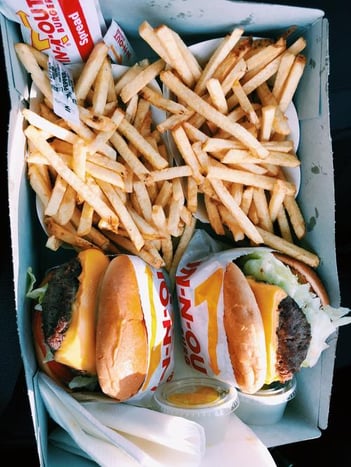 3. Bad fats
3. Bad fats Bad fats cause inflammation in the body. This topic is greatly debated and unfortunately, highly politicized. Lobbyist in the sugar/soda industry point the finger at all fats as the culprit in degenerative diseases, such as heart disease, rather than own up to the most recent research showing trans and saturated fat as the main problem. The truth is, some types of fats are ok to eat. Here's a good short article on the topic by nutrition expert Dr. Mark Hyman, author of "Eat Fat, Get Thin."
Hydrogenated Soybean Oil (look on ingredients of packaged foods)
Vegetable Oils which highly refined and processed oils include corn, soybean, canola, safflower, and sunflower oils.
We observe in our neurofeedback* centers in NYC, Denver, Boulder and Los Angeles, that when a child comes in for brain training to help with focus and school performance, changes are slower if the child has an undiagnosed food allergy. In fact, we often use "no change" reports from moms as a sign that the child may need to get an allergy check. In instances where food allergies are found and the child changes his or her diet, we rapidly see positive shifts of in the child's ability to focus on tasks and perform better in school. The neurofeedback/diet combination is key.
A study from 2009 shows that children diagnosed with ADHD who were put on a restricted (no common food allergens) diet had a significant reduction in ADHD symptoms. The study recommended parents consider an elimination diet for ADHD kids to rule out symptoms being caused by allergic reactions.
Common food sensitivities/allergies in children with attention and focus problems are:
Foods that contribute to brain health are foods that contain the building blocks the brain needs to function. Higher brain function improves focus and memory, and allows you to have stable energy throughout the day.
1. Good fats. These are the types of fat that protect the heart and brain and decrease inflammation. Examples include extra-virgin and cold-pressed olive oil, organic coconut oil and grass-fed butter.
2. Nuts: walnuts, almonds, pecans, and macadamia nuts are all great for fuel and contain the good fats the brain uses as building blocks.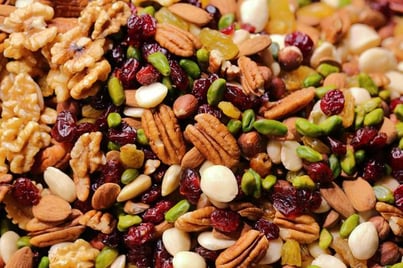
3. High-quality proteins. Look for organic, unprocessed, and grass-fed local producers. Replace simple carbohydrates-- bread, pizzas, cereals--with high-quality protein found in grass-fed meats, sardines, herring and wild salmon, all of which are high in Omega 3 oils. It will cost you more in the short term grocery bills but save you in the long-term health of your brain and the health-care costs related to degenerative illnesses.
4. Green and leafy vegetables: spinach, kale, swiss chard, collard greens, cucumbers, green beans, broccoli (the last three kids usually love).
5. Special brain foods: seaweed and grass-fed organic meats. Read the work of Dr. Wahls, who dramatically impacted her Multiple Sclerosis by changing her diet to brain-healthy foods. She researched the foods that are essential for the brain's ability to create myelination sheaths on neurons and support the health of the mitochondria (powerhouse) of the human cell, both of which are key to MS deterioration. Here's an interview with her describing her diet.
6. Low sugar fruits (berries) and a variety of colorful vegetables: every color of berry and a variety of colored vegetables to ensure vitamins are being consumed. Bright colors in fruits and vegetables is a sign we are getting the variety of vitamins and minerals we need.
Whether you want to be efficient on your exams or want to stay alert for your next presentation, feeding your brain good foods for memory and focus help achieve the best results. Food is your fuel for studying. If a car runs on unleaded fuel, you don't want to fill it with diesel. In the same way, if you want to get the best grades, eat the foods that the brain needs to function well.
Here are some of the foods you should eat to get your brain working at its maximum capacity. 
1. Eggs: Eggs are the most versatile foods on Earth. Contrary to what you’ve been told, eggs are good for you. The best eggs for the brain are served boiled, poached, or fried. They are rich in protein and choline, nutrients that improve cognitive function and memory.
2. Green Vegetables: There is a reason why parents always insist their children eat their green veggies. Broccoli, string beans, and peas are rich in Vitamin C, antioxidants and more. The greener and leafier the veggies, the better. Dark greens have the benefits of Vitamin K, B6, and B12. Some of them include kale, spinach, and chard. Eating these greens regularly can improve memory and alertness.
3. Fatty Fish: The healthiest fish are salmon, sardines, and mackerel. They are packed with protein and omega 3. Around 60% of the brain is made of fat, and half of it uses omega 3 to build your brain and its nerve cells. These kinds of fats are essential for learning and memory. It also slows down age-related mental decline and helps prevent Alzheimer’s disease.
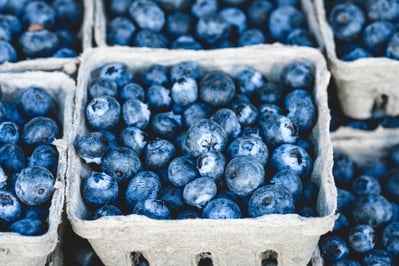 4. Fresh Fruit: Berries are all brain foods: they contain antioxidants which can help boost short-term memory and steer you away from those mental-blocks during exams and presentations.
4. Fresh Fruit: Berries are all brain foods: they contain antioxidants which can help boost short-term memory and steer you away from those mental-blocks during exams and presentations.
5. Walnuts: Walnuts protect healthy brain function, boost memory, and promote healthy skin. They are high in the good fats: omega 3s. And in antioxidants that boost the immune system. They are the perfect snack to stave off hunger and feed your brain while studying!
Your brain needs your care. And you need your brain to help you live your life to its fullest. The first step is to be aware of what you eat. The second step is to ask yourself if they are the foods that are the best for optimizing your brain's performance.
Natalie Baker has over 25 years of experience as a licensed psychotherapist and has been a NeurOptimal® neurofeedback trainer since 2011. She is the founder of Neurofeedback Training Co., which offers in-person sessions and runs the largest nationwide home rental program for NeurOptimal systems. Natalie also teaches meditation and Buddhist psychology and specializes in working with anxiety, stress, ADHD, and trauma.
Unlock your brain's potential and boost cognitive function the natural way. From brain exercises to foods, learn 4 easy ways to improve your brain...
What impacts brain health and performance? More than you think! Learn what factors impact brain performance from genetics to the food you eat.
What are effective brain training for kids to help with focus issues at school, stress and emotional regulation. Learn techniques that helps, and...
Be the first to know about new blogs